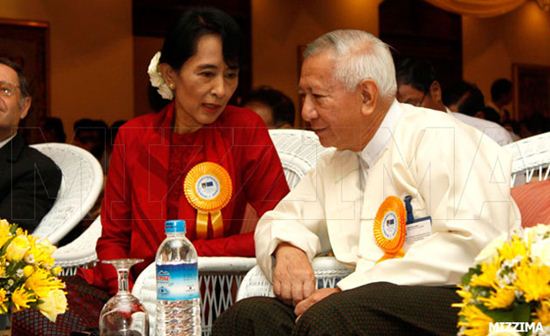U Myint, an economic adviser to Burmese President Thein Sein, has delivered an overview of how to utilize international aid funds, which are expected to start flowing rapidly into Burma starting this year.

The advisory paper, delivered at a workshop this week organized by the the Ministry of National Planning and Economic Development and the Japan International Cooperation Agency, outlined challenges and goals for the Burmese government in the near term.
He said it is important to acknowledge that “for over half a century since we gained independence, it has not been lack of resources, but rather misconceived ideas and flawed policies that have been our undoing.”
“For foreign assistance to help us, and for that matter, for us to help ourselves, we must be honest with ourselves,” he said. “And the first thing that is required for greater honesty will be to make a frank and objective assessment of where we are at present.”
He said the World Bank Policy Research Group has learned that aid works when the following conditions are satisfied:
- First, the timing of aid is important. If donors come forward with aid at a time when a recipient is making a genuine and determined effort at economic reforms, then good results are achieved;
- Second, although money is important, giving only money is not good. Giving aid in a mix of money and ideas (or know-how) is more effective;
- Third, the recipient country must demonstrate that it has the capability to manage its affairs and can make effective use of aid.
“In light of the above, the ball is in our court to make sure that the resumption of development aid that flows into the country are put to good use and benefit all our people,” he said.
He said it’s important that Burmese officials not suffer from “self-delusion.”
“On the contrary, we need to show that we are realistic, practical and hard-nosed and that we want aid to be need-driven rather than donor-driven,” he said. “Hence, we will come forward with concrete proposals concerning our needs, give justification for desirability of donor support for them, and will also provide convincing arguments why we believe they will contribute to our economic reform and restructuring process.”
At this stage of Burma’s development, he said, it is important to accept relevant ideas, expertise and knowledge from donors about better and more efficient ways of doing things that will help improve the well being of the Burmese people.
“We will also have to make sure that we have got rid of the constraints, hang-ups, confused ideas and misdirected policies that in the past have made us incompetent and ineffective, and are ready to demonstrate that we can put our house in order, can manage our affairs, and can deliver the goods,” he said.
Burma is in a good position to take on the three challenges noted above, he said.
“However, these are formidable and difficult challenges. The problems they pose have been built up over decades. Many areas they cover are strewn with land mines,” he said. “At present a lot of internal and external pressures have been exerted on us to rush headlong into these areas for all sorts of reasons. But we will have to be realistic and make our best efforts to resist these pressures and move forward at a pace, in a time frame, and in a manner that we feel confident are reasonably cautious, well thought-out and planned, within our capacity to deliver, and that meets our strategic concerns.”


